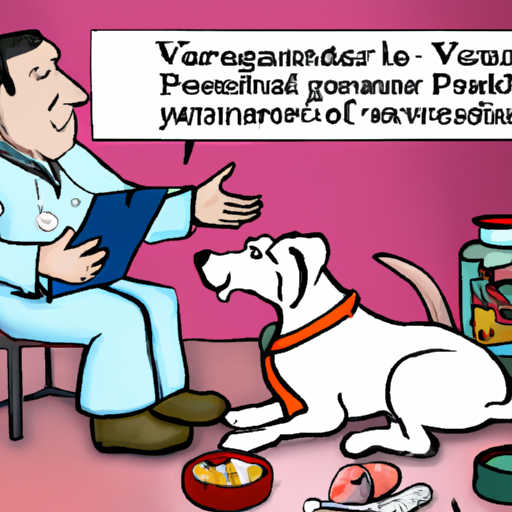As a dedicated caregiver, it’s essential to be knowledgeable about potential health problems your furry friend may encounter. One such health issue is pancreatitis. This guide will help you understand and manage pancreatitis in dogs.
Understanding Pancreatitis in Dogs
Pancreatitis is an inflammation of the pancreas, which is a small organ located near the stomach. It plays a critical role in digestion and insulin production. When this organ becomes inflamed, it can cause severe discomfort and potentially life-threatening complications.
Symptoms of Pancreatitis in Dogs
Look out for these symptoms:
- Loss of appetite
- Vomiting
- Abdominal pain
- Fever
- Diarrhea
- Lethargy
Diagnosing Pancreatitis in Dogs
If you suspect your dog has pancreatitis, it’s crucial to seek veterinary assistance immediately. The vet will likely perform a series of tests, including:
- Blood tests: To check for elevated levels of pancreatic enzymes.
- Urine tests: To rule out other conditions.
- Ultrasounds: To visualize the pancreas and assess its condition.
Treating Pancreatitis in Dogs
Treatment for pancreatitis generally involves:
- Hospitalization: Your dog might need to be hospitalized for fluid therapy and pain management.
- Diet change: A low-fat, easily digestible diet is often recommended.
- Medications: Your vet might prescribe medications to control pain and inflammation, as well as antibiotics to treat or prevent infection.
| Treatment | Purpose |
|---|---|
| Hospitalization | Fluid therapy and pain management |
| Diet change | Low-fat, easily digestible food |
| Medications | Control pain and inflammation, treat or prevent infection |
Preventing Pancreatitis in Dogs
Preventing pancreatitis primarily involves dietary management. Here are some tips:
- Avoid high-fat foods: These can trigger pancreatitis.
- Regular exercise: This helps to maintain a healthy weight, reducing the risk of pancreatitis.
- Regular vet checks: Regular check-ups can help catch any issues early.
FAQ Section
Q: Can pancreatitis in dogs be cured?
A: While there’s no cure, pancreatitis can be managed with the right treatment and lifestyle changes.
Q: Can my dog live a normal life with pancreatitis?
A: Yes, with proper care and management, your dog can lead a normal, happy life.
Q: What should I feed my dog with pancreatitis?
A: Vets usually recommend a low-fat, easily digestible diet. Always consult with your vet for the best dietary advice.
Q: Can pancreatitis be prevented?
A: While not all instances of pancreatitis can be prevented, maintaining a healthy diet and regular exercise can reduce the risk. Regular vet checks are also essential.
Remember, when it comes to your pet’s health, you are their greatest advocate. Being informed and proactive can make all the difference.



